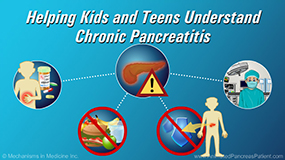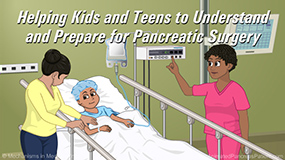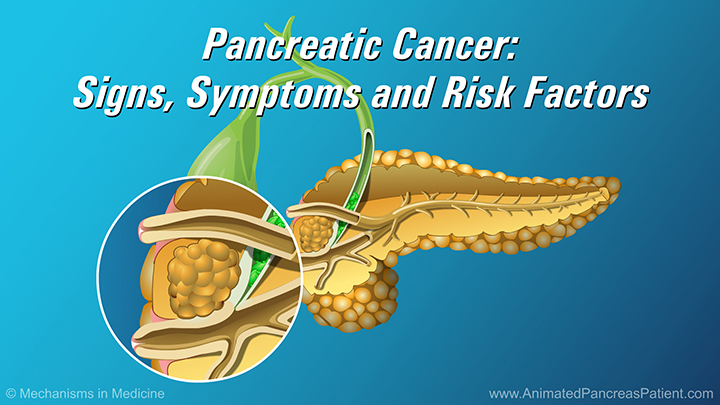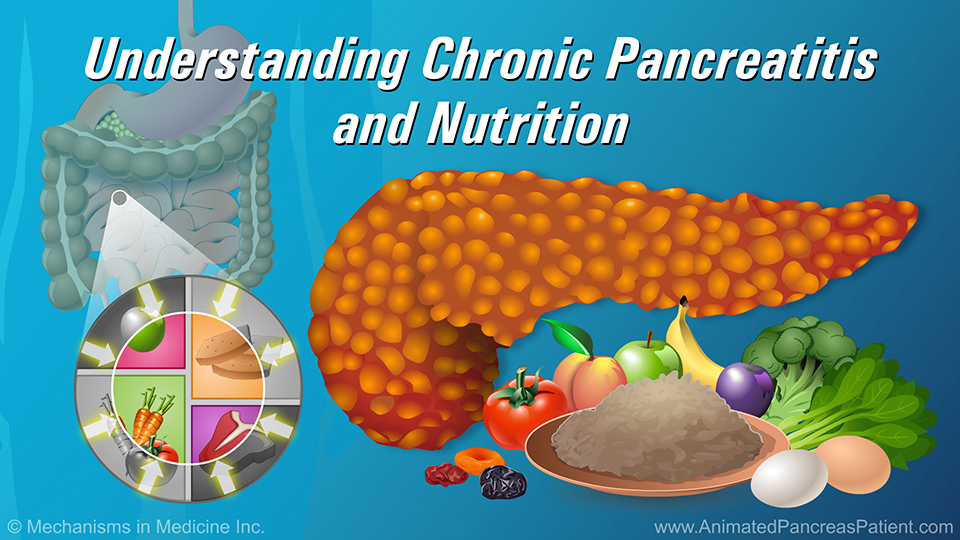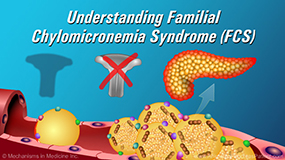Helping Kids and Teens Understand Chronic Pancreatitis
*Please note: This slide set represents a visual interpretation and is not intended to provide, nor substitute as, medical and/or clinical advice.
When pancreatitis occurs over a longer period of time, and comes back over and over again, this is called "chronic" pancreatitis and can be a life long condition.
This animation will help you to understand what chronic pancreatitis means, and how you can stay as healthy as possible!
You might be thinking, “Why does chronic pancreatitis happen?”
Both kids and teenagers can have chronic pancreatitis, but what causes it can differ depending on your age group.
As a kid, the cause is usually linked to an illness, a blockage within the pancreas, or a genetic disease.
The symptoms of chronic pancreatitis are very much like those of acute pancreatitis, except they are repeated episodes of belly pain, nausea, and vomiting.
These might happen a few times a year and might go on for several years.
In addition, you might also lose a lot of weight and have diarrhea or oily-looking stool or orange color in your stool.
Talk about this with your doctor.
If your doctor thinks you have chronic pancreatitis, your doctor will do some tests at the hospital.
The staff members at the hospital use imaging machines that can see inside your body and make scans of the pancreas to find out if it is inflamed.
If you have been told you have chronic pancreatitis you should follow directions from your doctor.
The doctor will test enzyme and hormone levels to learn how well your pancreas is working.
Complications that can result from chronic pancreatitis can include:
- regular treatment for pain;
- an inability to digest food;
- diabetes; and
- surgery.
Some of these can take a long time to develop.
Some medication may be given to help you with your pain.
Because the pancreas is damaged and does not make enough digestive enzymes to break food down by itself, you might also need to keep taking certain vitamins and special "enzyme" pills, to help you digest food.
Your doctor might need you to have surgery or special endoscopy for a blockage within the pancreas.
If you have chronic pancreatitis, following your doctor’s instructions is very important and taking your medications on time can help prevent any symptoms from worsening.
While living with chronic pancreatitis is challenging, there is good news in that several treatments and care options are available.
This slide show will help you understand what chronic pancreatitis is, including its causes, symptoms, how it is diagnosed, and what to expect. It also describes the complications that can result from chronic pancreatitis, as well as various treatments, surgical procedures, and how to stay as healthy as possible to help prevent any symptoms from worsening.
-
Share with family and friends:
Click here to take our SURVEY
Your feedback is important to us! We will use your feedback to develop future areas of content about pancreatic diseases which will help other patients, caregivers and families.
